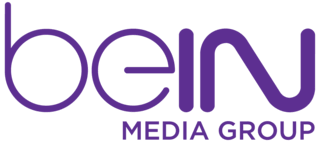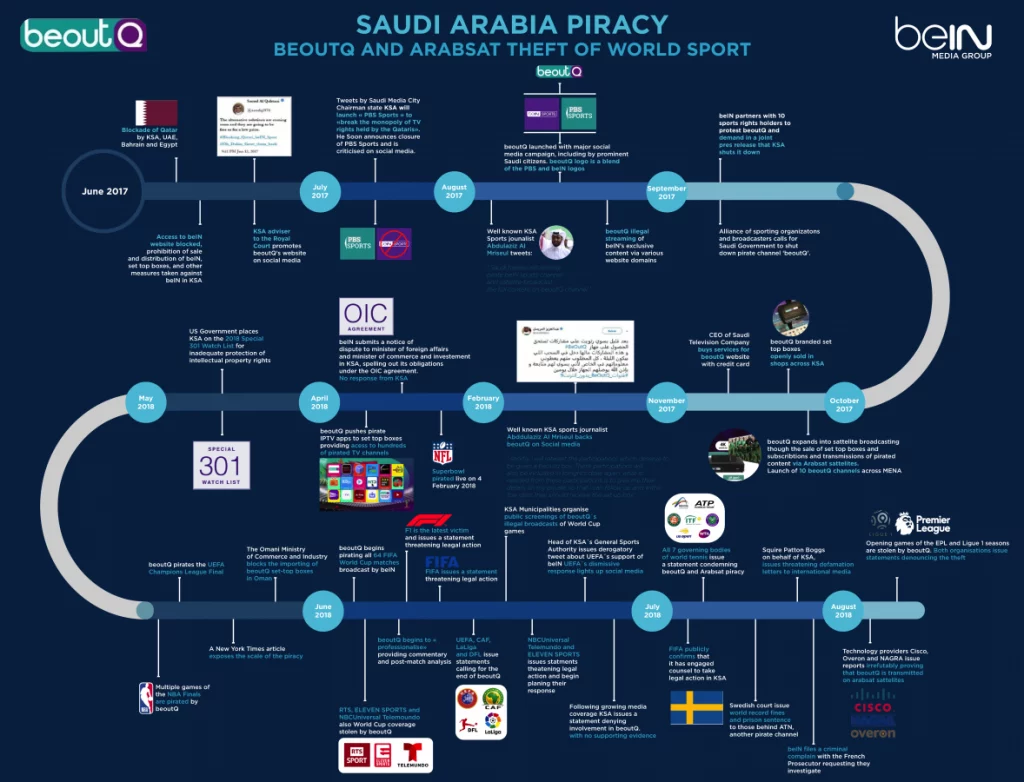 “Although we are making progress on piracy – and the new law in France to which beIN has contributed is really significant progress – it is not fast or complete enough. We are only as strong as our weakest link,” said beIN Media CEO Mohammad Al-Obaidly, speaking with the French newspaper Le Monde.
“Although we are making progress on piracy – and the new law in France to which beIN has contributed is really significant progress – it is not fast or complete enough. We are only as strong as our weakest link,” said beIN Media CEO Mohammad Al-Obaidly, speaking with the French newspaper Le Monde.
Citing recent research by Ampere Analysis commissioned by Synamedia estimating revenue loss to rights holders at $28.3 billion (€26.4 billion) annually, he said that piracy is now the biggest broadcaster in many markets; that “it’s crazy how immune we’ve beome to the magnitude of these statistics – think about this number – what sport could do with $28 billion in additional revenue.”
Some frustration
Mr Al-Obaidly noted that while beIN has invested heavily in anti-piracy, it should not be a solo effort; and that sports leagues and other broadcasters should also invest in the battle. beIN Media and others have held up the inability for distributors to meet contractual obligations for exclusivity because of vulnerability to piracy.
Seemingly frustrated, Mr Al-Obaidly said “When it comes to hacking, to be honest, I still feel a bit like the climate change activists who attended COP26 earlier this year – there was a lot of talk at the conferences, but still little action.”
Read the full story in Le Monde (Paywall. Auto-translated from French to English by Google Translate)
Why it matters
beIN Media is particularly sensitive to piracy both because it is a major sports broadcaster – and sports programming is among the most pirated. According to Le Monde, the BeIN Sports channel celebrated its tenth anniversary in France on June 1 and owns the rights for World Cup football through 2030. The World Cup will be held in Qatar next winter, and BeIN Sports will be the official broadcaster for 25 countries.
Experience with piracy
But also, beIN Media was victim to one of the world’s largest piracy operations, beoutQ, part of the geopolitical dispute between Qatar, where beIN Media is based, and the Kingdom of Saudi Arabia.

Unlicensed programming from beIN Media, and from sports leagues and other media organizations based around the world, was first distributed to beoutQ set-top boxes, over Arabsat, and online within the Kingdom; and soon thereafter, across the Middle East and North Africa. Programming distributed online was further re-distributed by other piracy operations. Saudi officials denied involvement.
Very costly
beoutQ was estimated to cost beIN Media billions of dollars when it was active from 2017 to 2019. In late 2018, beIN Media launched a legal action against the Kingdom, for damages of one billion dollars.
While the case was full of intrigue along the way – even to the extent that the Kingdom’s sovereign fund was to purchase the Newcastle United football club of England, which could have given it rights to football programming – eventually it was resolved.












